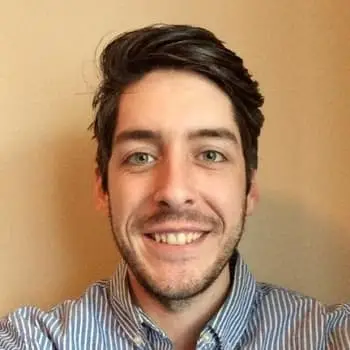People in the LGBTQ+ community face a variety of unique stressors that can easily impact mental health and lead to substance use. While only around 9% of the general population struggles with addiction, up to 30% of those who identify as LGBTQ+ have a substance use disorder.
Acceptance of the LGBTQ+ population has grown in recent years, but many LGBTQ+ individuals still face barriers of stigma and discrimination surrounding sexual orientation and gender. Further, people often turn to substance use in an attempt to cope with stress or underlying mental health concerns, and these concerns are more common in the LGBTQ+ community.
Unfortunately, not all treatment providers are able or willing to provide services that address these unique LGBTQ+ related issues. Effective addiction treatment addresses a person’s mental health conditions and underlying reasons for substance use — not just their addiction. So for treatment to be effective for LGBTQ+ individuals, their unique needs must be met throughout the rehabilitation process.
LGBTQ+ Specific Addiction Treatment
Certain treatment centers may offer programs specifically catered to the LGBTQ+ community. Unfortunately, many facilities may claim to provide LGBTQ+ resources but fail to offer programs that address the unique needs of this population. Before choosing a treatment facility, it’s important to do some research and learn whether the available programs can address your concerns effectively.
This Season, Give Yourself the Gift of a Fresh Start.
Whether you are struggling with addiction, mental health or both, our expert team is here to guide you every step of the way. Don’t wait— reach out today to take the first step toward taking control of your life.
LGBTQ+ Specific Treatment Approaches
In addition to therapy, counseling and other forms of addiction treatment, LGBTQ+ specific approaches can include:
- Learning how to cope with and respond to discrimination
- Taking stress-reduction classes
- Participating in research-based treatment that focuses on common challenges faced by people in the LGBTQ+ community
Information on how to come out to family and friends, develop healthy relationships and foster identity development can also be helpful. Additionally, staff may need training to overcome their own ingrained attitudes about the LGBTQ+ community.
An especially sensitive treatment program may be able to cover these topics without creating specialized programs to do so. However, dedicated treatment resources are generally more effective.
Lack of LGBTQ+ Treatment Options in the U.S.
Although many treatment centers claim to offer specific services for LGBTQ+ individuals, a 2007 study found these claims were often untrue. Around 11% of U.S. addiction treatment facilities stated they offered specialized LGBTQ+ services. Of these, only 7.4% could identify programming that was specific to this population. Additionally, 70.8% of LGBTQ+ programs were no different from the programs provided to the general population.
Substance Abuse Treatment in Palmer Lake, Colorado
At The Recovery Village at Palmer Lake, we understand the unique challenges that many people within the LGBTQ+ community face. When providing treatment, our caring and compassionate staff stays mindful of life circumstances and recognizes the effects that past experiences can have on a person’s mental health and behaviors. By understanding and addressing LGBTQ+ specific concerns, we’re able to provide effective care that helps our clients flourish in recovery.
Depending on the needs of an LGBTQ+ client, treatment at The Recovery Village at Palmer Lake can provide an effective healing experience. However, some LGBTQ+ individuals may feel more comfortable at a facility that caters exclusively to LGBTQ+ clients.
You deserve the highest level of care possible. If you are interested in beginning addiction treatment at our facility, or if you need help finding the right recovery resources for yourself or a loved one, The Recovery Village at Palmer Lake is here for you. Contact us today to speak confidentially with one of our professional representatives and learn more about what programs and services we offer. We’d be happy to answer any questions you may have and help you find the perfect treatment program for your situation.








